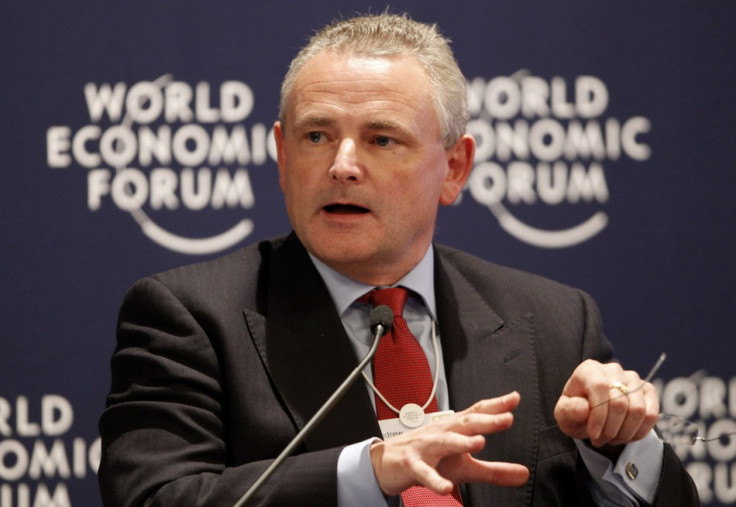Too Little, Too Late: Aviva CEO Andrew Moss Steps Down Despite Improved Results

Aviva's Andrew Moss shocked the markets today by stepping down as CEO, despite being at the helm of the group that delivered a strong set of results exactly two months ago.
In a company statement, Aviva revealed that Moss would be leaving the group and will cease to be chief executive with immediate effect, after Moss approached Lord Sharman, chairman of Aviva with the decision that "he felt it was in the best interests of the company that he step aside to make way for new leadership."
Aviva's board has since asked chairman designate John McFarlane to become interim executive deputy chairman with immediate effect and executive chairman from 1 July pending the appointment of a new chief executive officer.
As Aviva topped the FTSE 100 today, following the news of Moss' departure, it would seem that this would be a market wide celebration that a new leader will take the helm. However, IBTimes UK asks whether Moss leaving, possibly because he was not granted a pay rise, was the right course of action.
Since 2007, all financial, banking and insurance companies have faced tough times in light of the credit crisis, subsequent country recessions and now the European debt crisis.
Comparing Aviva shares to other UK insurance stocks, the group has been underperforming.
Over the last year, Old Mutual shares delivered an 11.76 percent return, Standard Life a 3.26 percent return, Legal & General a 1.66 percent return, while Prudential's share return stands at -1.77 percent, according to Bloomberg data.
While Aviva shares recuperated some of its yearly losses after soaring by nearly 4 percent today at 312.9p a share, this still shows over a -23% return on the stock.
The share return for Aviva looks dismal and the recent shareholders revolt has some merit.
However, the view that Moss had failed completely and did not deserve a pay rise is contentious as the group's recent results showed a turnaround in fortune.
In a challenging year that was dogged with the European sovereign debt crisis and with the UK slipping back into a technical recession, Aviva managed outperform targets and increase total dividend to its shareholders of 26p for 2011, an increase of 2% over 2010; a mean feat in light of the terrible market conditions.
Aviva operating profit rose 6 percent on a continuing basis in 2011, while operating capital generation stood at £2.1bn, compared with £1.7bn in 2010.
Profitable growth in life insurance also bolstered results, as life insurance operating profit rose 7 percent to £2.1bn, from £2bn in 2010.
However, despite the turnaround in results, Moss is still gone following the more worrying new precedence being set in the market; shareholder and general public revolt against senior executive remuneration.
What this has demonstrated is whether the increasingly popular backlash from shareholders and the public is stopping progress being made.
It is understandable that there is uproar over bumper pay packages for executives, especially when companies and markets have yet to recover to pre-credit crisis levels but there are several factors that this incident with Moss has highlighted.
Check out the latest from IBTimes UK on Executive Pay Reforms and Battle for Bonuses
© Copyright IBTimes 2025. All rights reserved.





















